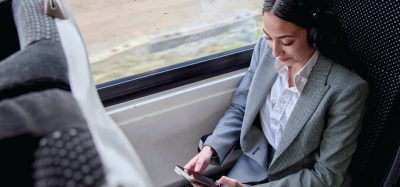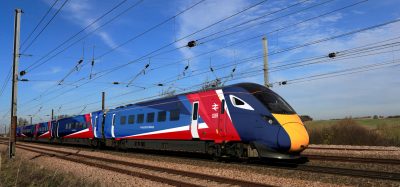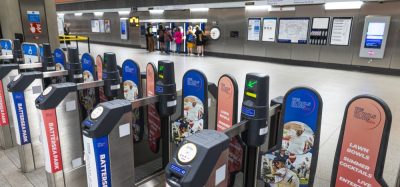Deutsche Bahn’s sales strategy
Posted: 3 April 2006 | | 1 comment
As part of its restructuring and modernisation programme, Deutsche Bahn AG optimised its sales concept in the passenger transport sector. The strategic goals were to increase revenues and reduce costs, while at the same time securing quality. DB has substantially increased its local and long- distance transport revenues over the last few years. The continuing […]
As part of its restructuring and modernisation programme, Deutsche Bahn AG optimised its sales concept in the passenger transport sector. The strategic goals were to increase revenues and reduce costs, while at the same time securing quality.
DB has substantially increased its local and long- distance transport revenues over the last few years. The continuing positive trend is driven by both the acquisition of new customers and the consistent exploitation of the market potential.
Sales costs have also been significantly reduced. During the 2003-2005 two-year period, sales fees and commissions were cut from 16.1 per cent to 10.9 per cent. By offering these price benefits, Deutsche Bahn is motivating its customers to purchase their tickets themselves – at ticket vending machines or online on the DB website www.bahn.de.
At the same time, however, the DB Travel Centre, which provides personal service in the station, will remain the indispensable backbone of DB’s sales operations – even though the percentage contribution made by this sales channel to the company’s overall sales revenues exhibits a declining trend.
Deutsche Bahn currently offers its customers seven convenient ways of purchasing a ticket:
- In large and medium-sized stations, Deutsche Bahn operates travel centres of its own. By the end of 2005, DB had generated around 37 per cent of its ticket revenues by means of this traditional sales channel. A year earlier, the figure had been 43 per cent. In 40 larger stations, DB’s travel agent ‘Reiseland’ has a counter integrated into the DB Travel Centre, offering a complete range of travel services
- In 2005, ticket vending machines overtook travel agencies to become the second most important sales channel. Their share of sales revenues increased to 22 per cent, and in terms of the number of tickets sold, ticket vending machines were way ahead at 56 per cent
- Some 3,160 travel agencies and 430 independent agents throughout Germany are in possession of a DB licence. These are sales channels used by Deutsche Bahn primarily to sell its more expensive tickets. While agencies sell only 10 per cent of all DB tickets, they nevertheless generate 21 per cent of the earnings. Travel agencies play a key role in ticket sales for business travel and also ensure there are sales outlets offering a personal advisory service outside the stations and in places where Deutsche Bahn has no sales outlet of its own
- The online ticket that customers can print themselves on Europe’s largest travel website – www.bahn.de – is fast becoming a ‘bestseller’. In 2005, DB generated eight per cent of its ticket revenues via the World Wide Web – a spectacular increase of 60 per cent within one year
- DB’s subscription centre deals with commuters who subscribe to season tickets. This sales channel accounts for five per cent of revenues
- Ticket sales on the train generate three per cent of sales revenues. On the ICE or InterCity, DB passengers pay an extra charge that adds approximately 10 per cent on the regular price
- Bookings by telephone through the DB Call Centre account for two per cent of sales
Successful control of sales channels
To achieve its strategic goals in sales, Deutsche Bahn set up a project in 2001 designed to improve the control of its sales channels. Between 2001 and 2005, we have managed to cut costs by just under €200 million by placing greater emphasis on self-service sales channels, for example. This has been achieved by means of a special incentive programme designed to offer DB customers additional benefits, particularly when they purchase a ticket online or at a ticket vending machine. A customer who also reserves a seat when purchasing a ticket online via the company’s website or at a ticket vending machine, for example, only has to pay €1.50, which is just half the amount charged over the counter in the DB Travel Centre or by a travel agent.
‘Surf&Rail’, for example, is a special offer that is available exclusively from www.bahn.de. Special prices are available with an additional €5 reduction on the company’s website and at ticket vending machines.
DB Travel Centres remain the backbone of DB sales
Deutsche Bahn currently operates its own DB Travel Centres at 433 large and medium-sized stations. To cut sales costs, approximately 400 uneconomic sales outlets have been closed down over the last five years. However, with the introduction of alternative sales models (agencies in particular) DB has ensured that its passengers continue to enjoy personal service when purchasing their tickets at the majority of these locations.
In large and medium-sized stations, however, DB Travel Centres will remain the backbone of DB sales. To begin with, they play an important role as the first point of call for new customers coming into contact with the rail system for the first time. And services that require more detailed planning, such as DB Autozug motorail services, night trains, group travel and our international services will continue to play an important role in DB’s own sales outlets.
The five busiest DB Travel Centres, which are located in Berlin, Hamburg, Frankfurt, Cologne and Munich, underwent a complete facelift at the end of 2005 to provide customers with a more pleasant atmosphere and to optimise the sales and advice processes.
To ensure that travellers are given the best possible service and to reduce waiting times, there are now ‘reception managers’ in the 40 major DB Travel Centres. Specially trained staff approach customers as soon as they arrive, determine what their specific requirements are, and direct them to the right counter. In the context of sales channel control, there are also guides available in the large stations to help travellers overcome their initial fear of using the ticket vending machines by showing them how to complete the booking procedure.
Deutsche Bahn places high priority on quality control. Whether passengers are happy with the service they receive in the DB Travel Centre depends not only on the specialised knowledge and competence of the DB staff members, but also to a large extent on the amount of time they spend waiting. Although Deutsche Bahn is basically forced to reduce staff in its own sales outlets in order to bring down sales costs, it has taken on new staff at short notice in 70 of the busiest DB Travel Centres. This was an immediate response by DB Vertrieb GmbH in 2005 to cope with the above-average increase in customers that had temporarily led to exceptionally long queues during peak travel periods.
New sales concepts: DB Service Store, DB Agentur, DB Mobility Centre
Despite the closure of uneconomic DB Travel Centres, Deutsche Bahn still provides nationwide coverage. Approximately 70 per cent of the stations affected by closure continue to provide ticket sales combined with personal service and advice. Since 2003, DB has not eliminated a single travel centre without providing a replacement.
Deutsche Bahn invests in innovative sales concepts in smaller locations and offers interesting business prospects to anyone starting up a new venture. Authorised DB agencies have been set up in just under 100 stations since 2003 as part of a business start-up initiative that enabled former DB employees to become self-employed. These privatised sales outlets generate on average 15 to 20 per cent more sales than the former DB-owned travel centres at the same location, because they were able to adapt their opening hours more flexibly to the needs of travellers. Many DB agencies, in addition to the complete range of DB services, also sell tickets for the local urban and regional transport services and tourist services.
With its DB Service Store brand, Deutsche Bahn has developed a second innovative sales concept that can be applied at many locations and by the end of 2005 had already been implemented in 131 stations. Deutsche Bahn’s franchise system is based on the convenience store concept that was developed by the oil companies for their petrol stations.
The DB Service Stores sell travel necessities, newspapers, tobacco products and even tickets at locations that have no DB Travel Centre of their own. With their knowledge of the area, local self-employed franchise owners can extend the range of products and services with additional services as they consider fit. A total of 500 service stores are to be set up in Deutsche Bahn stations by 2009.
Another innovative sales concept has been tested by Deutsche Bahn since the end of 2005 in Frankfurt: for the first time, a company-owned sales outlet operating under the name of the ‘DB Mobility Centre’ has been opened that is not located on the station’s premises. Located in the city centre, the DB Mobility Centre is very convenient for passers-by who do not normally walk as far as the station. Deutsche Bahn sells its entire product portfolio there, from ICE tickets and tickets for its motorail services and local transport services to BahnCards, DB Carsharing, ‘Call a Bike’ and the programme offered by DB-owned tour operator Ameropa down to merchandising items from BahnShop 1435.
The online ticket is more popular than ever
Since its introduction in 2002, DB’s online ticket has rapidly developed into a ‘bestseller’ that is gradually becoming accepted by regular customers and frequent travellers in particular. On DB’s website – www.bahn.de – registered users can book tickets with a mouse click for almost all long-distance services within Germany and print them out in pdf format.
The DB BahnCard, or the credit card used for payment, serves as proof of validity when the train attendant inspects the online ticket, which is printed on normal paper. The 13-digit transaction number (or a 6-digit short transaction number) that is entered manually by the train attendant into his mobile terminal to confirm the validity of the travel document has proven to be both effective and reliable. Cases of misuse of the online ticket or forgeries are less than one per thousand, so lost revenues in the case of online sales are fewer than is the case with conventional tickets.
To speed up and simplify the inspection procedure, which currently takes an average of 70 seconds, Deutsche Bahn is now testing a second generation online ticket. A 2D barcode containing the transaction number will now be printed on all tickets that have been purchased online. New mobile terminals that are currently being tested in service scan the barcode, so that the train attendant no longer has to enter the transaction number manually.
Deutsche Bahn’s intention is to internationalise the online ticket and make it available for use on cross-border services through partnerships with neighbouring railways. The extensive experience DB and Swiss Federal Railways (SBB) have gained with tickets that are downloaded from the World Wide Web have encouraged both companies to create a common platform that is hoped will become the UIC standard in the mid-term.
The sales figures clearly show that the time is ripe for such a development: in 2005, an average of 30,000 online tickets were purchased daily. The Internet is now Deutsche Bahn’s fourth most important and at the same time fastest growing sales channel. From December 2004 to November 2005, DB’s online revenues rose by approximately 60 per cent. Two of Deutsche Bahn’s key target groups have developed a particularly strong affinity for online purchase: in the case of business travellers, 23 per cent now prefer the Internet in their choice of sales channel. In the case of ICE or InterCity passengers, it is 13 per cent.
www.bahn.de, has not only established itself as the sales platform for Germany, but is also designed to meet the needs of international customers. Online tickets and seat reservations can be booked for train journeys in Germany by individuals or travel agencies throughout the world after registration using a credit card. Timetable information and the booking dialogue are available on DB’s website in English, French, Italian, and since February 2006, in Spanish.
Deutsche Bahn also encourages third party sales on the Internet: DB’s online timetable information and booking functions in future will also be integrated into airline websites and other travel portals on the Internet.
DB tickets become best selling item at food discounter
With its special sales offers, Deutsche Bahn is also pursuing new approaches with new partners. A special offer made through the ‘Lidl’ retail chain was a resounding success. Within just a few days, the food discounter sold approximately one million ‘open rail tickets’ at a cost of ?49 for two journeys in Germany.
With this offer, Deutsche Bahn was able to reach numerous non-travellers or infrequent travellers and in particular correct the public’s perception of price – the standard cliché: ‘Rail travel is too expensive!’ – in its favour. In addition, DB’s passenger transport services got an extraordinary amount of attention in all the media as a result of the time-limited collaboration with Lidl. The dramatic increase in interest from other retailers in collaborating with DB is seen as an additional positive side effect of this pilot project.
Tailor-made DB offers for large companies and small businesses
Deutsche Bahn offers institutional customers – from international groups to SMBs – tailor-made solutions for the planning and handling of all their business travel needs.
bahn.corporate, DB’s corporate customer portal, makes the process of booking tickets easier and faster, and thus reduces costs.
From as a little as ?3,000 in ticket purchases a year, customers can benefit from corporate customer discounts and highly efficient booking tools that are also available online. ‘Bahn-Tix’, for example, is a service Deutsche Bahn offers its corporate customers that saves both time and money. Tickets that have been booked in the company’s own travel office can be printed out at any touch screen ticket vending machine in Germany.
Stay Connected with Global Railway Review — Subscribe for Free!
Get exclusive access to the latest rail industry insights from Global Railway Review — all tailored to your interests.
✅ Expert-Led Webinars – Gain insights from global industry leaders
✅ Weekly News & Reports – Rail project updates, thought leadership, and exclusive interviews
✅ Partner Innovations – Discover cutting-edge rail technologies
✅ Print/Digital Magazine – Enjoy two in-depth issues per year, packed with expert content
Choose the updates that matter most to you. Sign up now to stay informed, inspired, and connected — all for free!
Thank you for being part of our community. Let’s keep shaping the future of rail together!








Germany’s privatized national railway, the Deutsche Bahn, features the super-fast InterCity Express (ICE) trains. They zoom around the country at hourly and two-hourly intervals and link up all major cities. Transferring from one of them to another is usually just a matter of crossing the station platform and speeding off again within minutes of your arrival. Some ICE trains also operate between major international destinations including Switzerland, Belgium, Austria and the Netherlands.
By the way! The best essay writing service – https://www.easyessay.pro/
And Happy New Year!